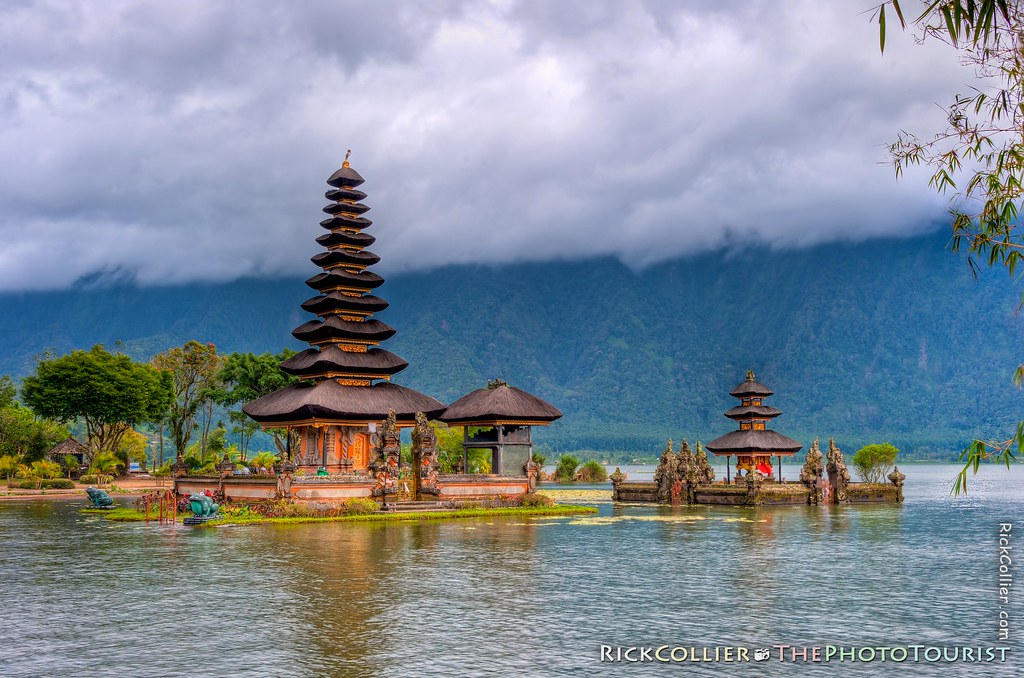- Home
- Categories
- Subscribe
- Contact
- Image Archive
- Search
-
Search
* Photo archive search opens a new tab or window
...or...
-
 “Lake Shrine“ |
Our driver-cum-guide called it variously “the crater lake,” “the monastery at the lake,” or “the temple at the lake.” No matter how it’s known, the Hindu temple at Candikuning is one of the most emblematic sights of Bali. It took us nearly two hours to drive from our bed and breakfast (Rumah Cantik) in picturesque Lovina Beach on the north coast of Bali up into the highlands of Bedugul and to the small village of Candikuning. There, we were at about 1200m above sea level, roughly 30 km on the main road south from Singraja and about 53km north from the capital, Denpasar. The drive took us over a picturesque mountain with many switchbacks and scenic views. Part of the road has been widened to provide pull-offs where vendors hawk and locals or tourists can pull over to interact with the wild monkeys that have learned to hang out and beg at the roadside.
The Ulun Danu temple sits at the edge of Candikuning, amid beautifully landscaped lawns, walks, statuary, and shrines on the shores of Lake Bratan. Lake Bratan is actually the crater of a long-dormant volcano; the lake and temple scene has as a backdrop the towering remains of one massive side of the volcano’s caldera, the Gunung Catur. Because of the humidity and altitude, we were told it is frequently misty or cloudy here. It was cloudy the day we were there, with dramatic low skies and only occasional gaps where blue sky showed through.
Ulun Danu is dedicated to the Hindu goddess Danu, the patron of water (rain and rivers). The impressive Pura Ulun Danu Bratan has a walled center precinct that is normally closed to the public, as it is actively in use as a Hindu temple. Gates in the long walls provide the visitor a glimpse into the inner temple (and occasionally provide worshippers and children inside a glimpse of the hordes of tourists besieging their devotional oasis). There are a number of attractive and active shrines scattered in the gardens. The two multi-tiered shrines built on tiny islands in Lake Bratan form what is are probably the most recognizable and often photographed sight on Bali. They are so recognizable as landmarks and photo-ops that a number of photographers haunt the lake’s shoreline nearby, taking and selling snapshots for the visiting tourists. (The vendors’ photos are taken with high-end digital SLR cameras and printed on small portable printers, right there on the spot.)
(High dynamic range exposure composed of eight bracketed exposures covering a range of -4 to +4 EV; Nikon D700 with NIkkor 28-300mm zoom lens at 38mm, ISO 200, f/13 at 1/100 sec.)
.
Lake Shrine is a post from: the Photo Tourist